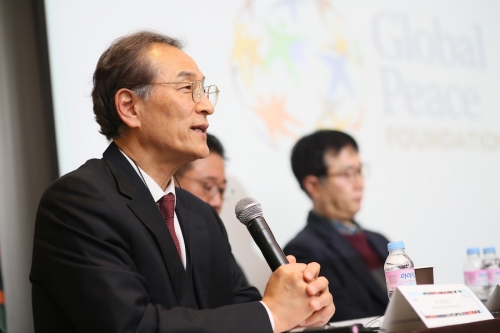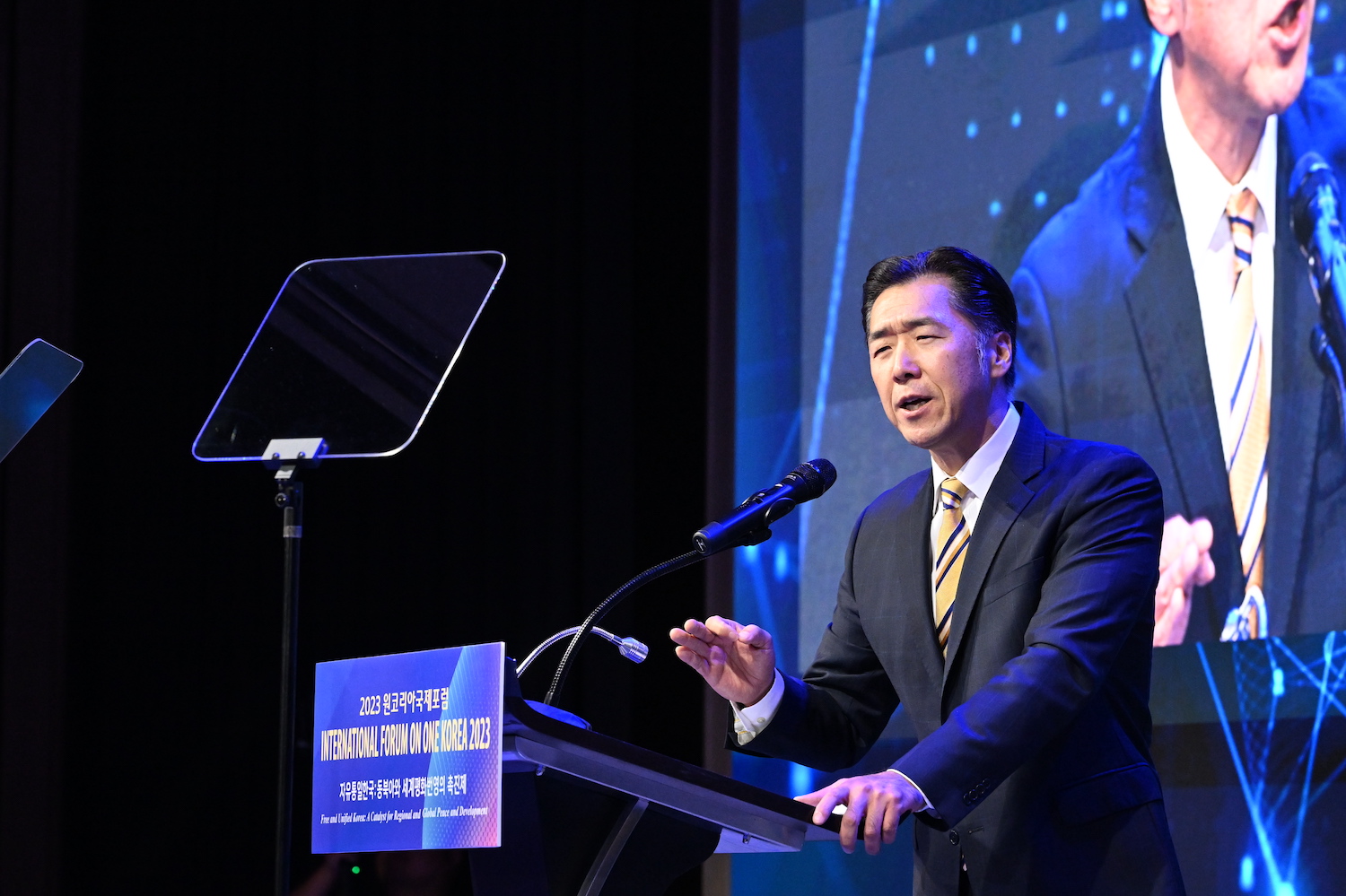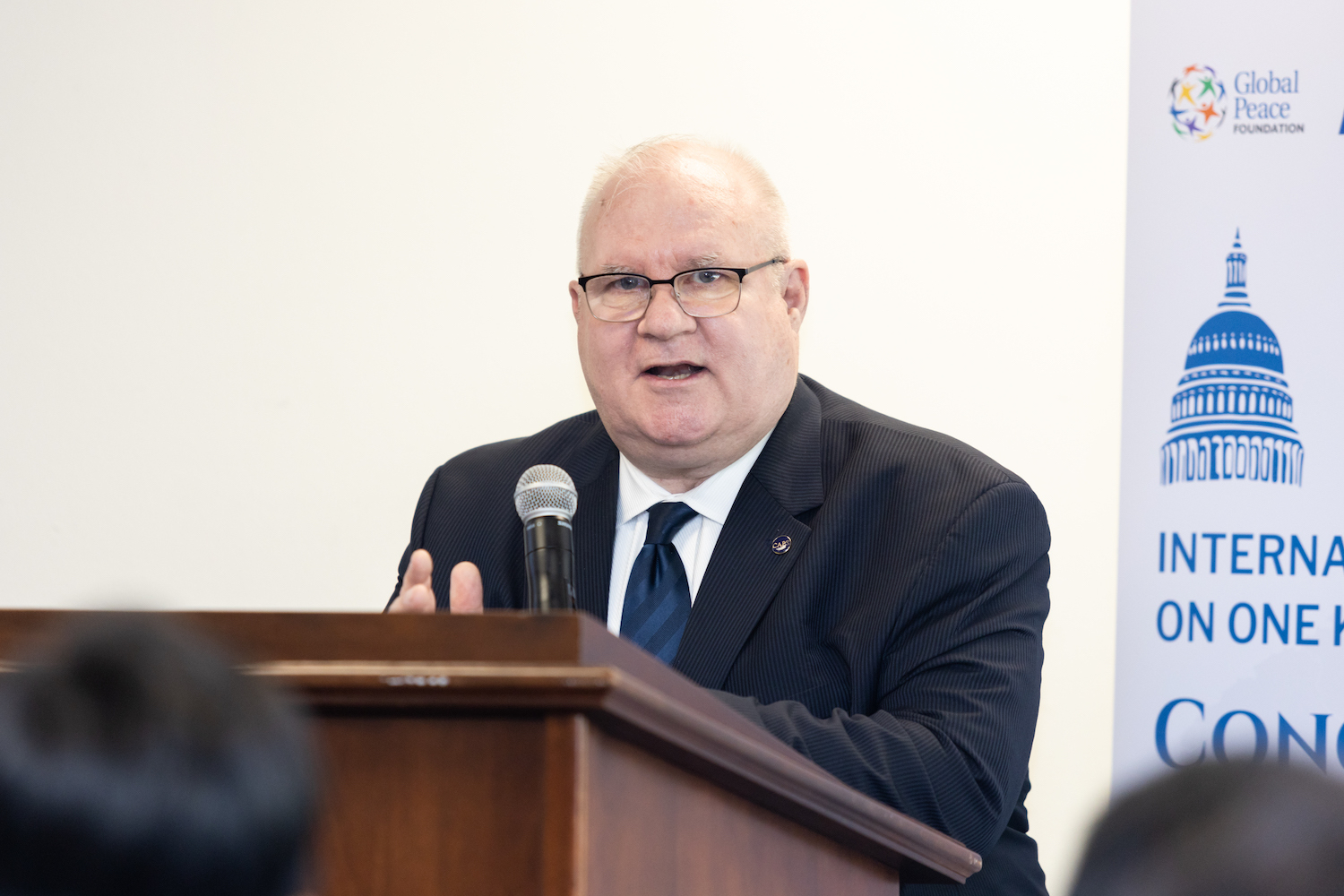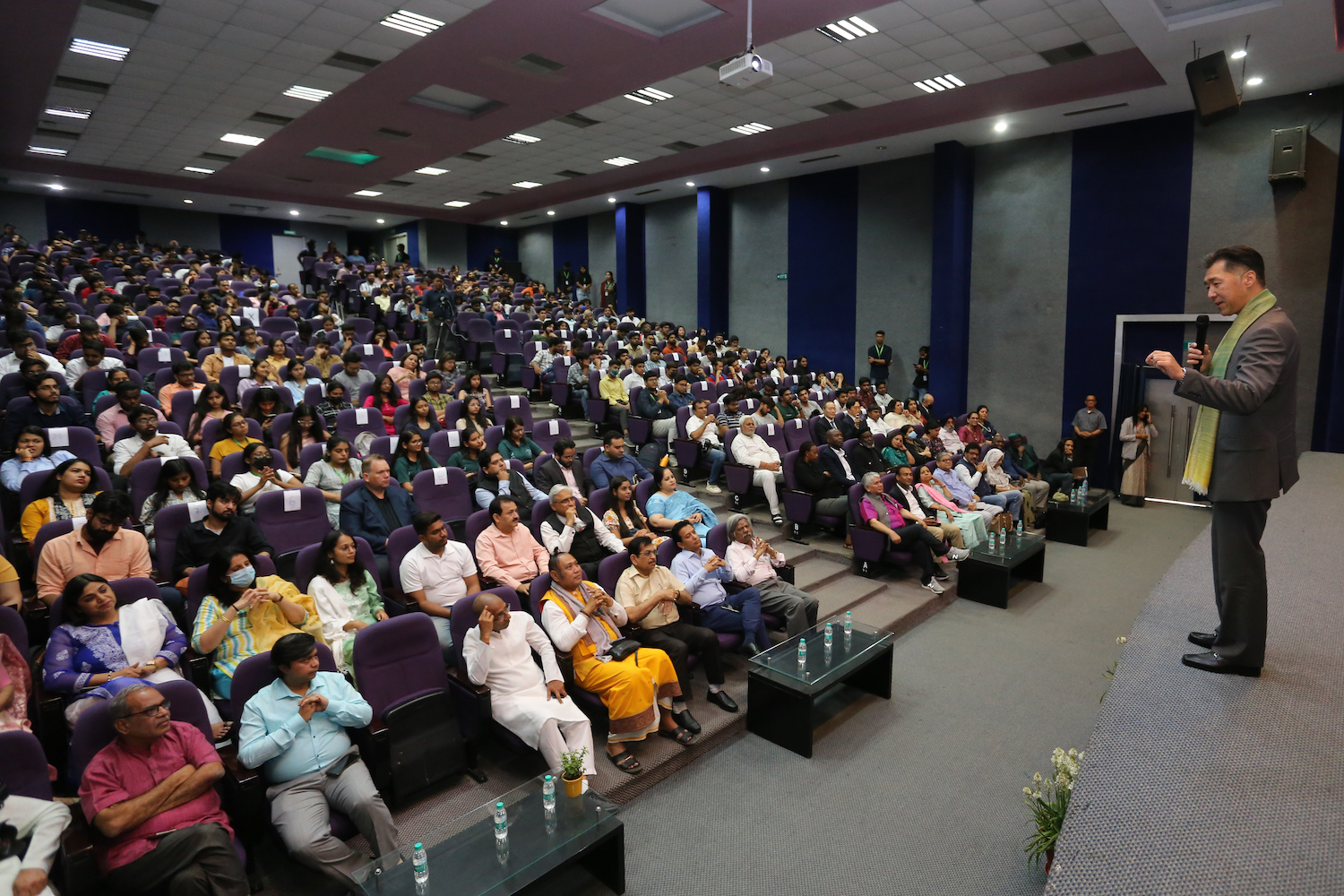
Jin Shin
Dr. Jin Shin, Professor, Chungnam National University
Director/National Strategy Institute, CNU
- The paradigm changes of world politics
Power shift and paradigm change were predicted in the global political and economic regime at the Davos Forum (World Economic Forum) held from January 17, 2017 to January 21, 2017. Trump’s withdrawal of international public goods, such as free trade and the stability of the global economic system, which the United States has been providing for years, has made the international community uneasy. At that time, China’s Xi Jinping said that China will lead the liberal market economy. He argued for economic globalization.[1] Beijing has made the 1.5 billion Chinese economy the world ‘s second largest economy thanks to the benefits of current international public goods. China is preparing to change the global economy and political regime while maximizing its own interests based on the already established international institutions and international agreements. The international community will be at the crossroads of war and prosperity depending on how China will act and the world responds. It is frightening to anticipate how China’s leadership will change the world, since China has acted in the interests of China, ignoring world standards.[2]
- Threats to World Peace
Cruelty and terrorism by Islamic extremists are promoting the cultural conflicts around the world. The brutal terrorism of ISIS is predicting a war between Christian civilization and Islamic civilization because it raises fear and hatred of the entire Islamic civilization.
The global crisis is on the rise since 2015. Increasing unemployment, income disparity, and social conflicts are leading to a rapid expansion of the policy of their own national interests first. The complaint against the vested powers is creating the emergence of the extreme right in the world. National tolerance is also disappearing.
Trump’s US National Interest First policy and crack of world peace regime
The United States is deviating from the leader state of world peace. President Trump ‘s US National Interest First policy is to either cancel or reduce the alliance and its contribution to world peace if it does not meet the current economic interests of the United States. So far, President Obama has pursued a “pivot to Asia” policy and a “rebalancing” policy. He was shifting strategic priorities from the Middle East and Europe to Asia. China is taking its place as President Trump withdraws President Obama’s “return to Asia” policy. There is emerging a gap in power and a shift in power in Asia.
North Korea’s nuclear and missiles
North Korea has constantly developed nuclear weapons for the past 70 years since 1956. North Korea had its fifth nuclear test on September 9, 2016, beginning with the first nuclear test on October 9, 2006. The fifth nuclear test is a 10kt nuclear test[3], and North Korea has more than 10 nuclear weapons. In addition, North Korea joined the Biological and Toxin Weapons Convention (BTWC) in 1987, but it also produces and holds a large amount of biological weapons according to the U.S. Secretary of Defense’s 2014 report.[4]
North Korea has not joined the Chemical Weapons Convention (CWC). Pyongyang has been developing and producing chemical weapons since 1954, and currently has about 5,000 tons.[5] North Korea test-fired a missile at the day of the summit meeting between US President Trump and Japanese Prime Minister Abe on February 12, 2017. North Korea’s new Intermediate-Range Ballistic Missile (IRBM) with solid fuel was launched from a portable launcher equipped with a caterpillar. The missile is capable of a surprise attack on the base of Okinawa, the core base of the US Asia – Pacific region. The North Korean missile, launched this time, uses solid fuel and can attack without any preliminary preparation time, which now became a global threat, including Korea and the United States.
In addition to provocative acts that threaten world peace, North Korea is the world’s worst human rights oppressor. In its 2014 report, the North Korean Human Rights Investigation Committee, established by the UN Human Rights Council, reports that North Korea’s genocide, murder, forced labor, torture, detention, rape, forced abortion and other acts of sexual violence are the most serious violations of human rights in the current era. Thus, the NKHRIC urged the UN General Assembly and the Security Council to bring North Korea to the International Criminal Court.[6]
China has a policy different from that of the international community. Beijing uses North Korea’s nuclear arsenal as a leverage of controlling the United States. There is a saying in Chinese proverb, “No matter how powerful you can be, you can’t fight a fly and a tiger at the same time.” China tries to utilize North Korea’s nuclear and missile provocations as leverage in negotiations with the United States. Assume the following situation: North Korea possesses nuclear weapons, China is equated with the United States in terms of military strength, the United States abandons its role as a peacekeeping force in Asia, or the United States withdraws its military forces from the United States. Then, Korea should make a crucial and important choice. South Korea will become a tributary of China that is backed by China for security and unification, or will become a nuclear armed force against North Korea.[7]
- Symbolism and Necessity of Korean Unification
In particular, Korea is a world-history-meaningful being and a very symbolic country. At the same time, Korea has an obligation to practice and show universal human values throughout the world. During the Korean War, Korea received big help from foreign countries including United States and remembers it forever. As a matter of fact, Korea could be erased from the face of the earth. The Koreans always appreciate the United States and the military of 16 countries and the 5 countries of medical support that have saved Korea.
- United States United Kingdom Canada Turkey Australia Ethiopia
- Philippines New Zealand Thailand Greece France Colombia
- Belgium South Africa Netherlands Luxembourg
Medical support
Other support
It was only the ashes left after the three-year war from 1950 to 1953. Korea’s economic growth is based on free trade and world peace, and South Korea’s security by the US defense alliance.
The unification of Korea has the following meaning.
- Korea ‘s unification is a model for the nations undergoing division, national conflict, and civil war.
- The victory of freedom and democracy against the last remaining communism.
- The victory of the world spirit against the suppression of human rights and the dictatorship system.
- It is a model that has experienced colonial oppression and succeeded in economic development.
- A country that has survived with the help of the United Nations and the world has become a model of the nation that can help the world.
- The unification of Korea and North Korea is a testimony to the success of national integration between the developed and the poorest countries.
- Future Vision
- Sturdy fence
The key to the prosperity of mankind is the diversity and mutual cultural exchange. In the history of mankind, closed and isolated countries have been perished, and countries with active international exchanges have flourished. Prosperity and a sturdy fence are both sides of a coin.
Like Robert Frost’s Mending Wall, “Good fences makes good neighbors”[9] Benjamin Franklin’s saying is also very popular, “Love thy neighbor, do not pull down your hedge.”[10]
Fences are the ability to defend themselves. Sturdy fences increase exchanges, because the gains from trade are greater than the gains from war. Thus, the countries that promoted various exchanges with foreign countries prospered while keeping their identity. A fence is a border that protects your identity, and a shelter to create a sanctuary. Respecting the boundaries of the fence respects the interests of others and does not infringe. In this respect, neighbors will be friendly and mutual trust will be established. Neighbors who do not respect the fence cause war and conflict.
The world community must prevent conflicts and war outbreaks by ensuring that community members respect their fences through international regimes. Countries around the world should help to install appropriate fences for each condition. And the fences should be kept together by the international community or international regimes.
- Respect and love for neighboring countries
Respect, love, caring, active communication, in-depth communication and dialogue with neighbors is an important basis for resolving conflicts among neighbors. Later, they generate profits through mutual cooperation and common work. Korea, China, Japan, North Korea, and Russia have had bloody wars in Asia over the past 100 years of history. But long ago these countries were neighbors that helped to prosper through mutual cooperation. Historically, these countries have had more cooperation than conflicts. Thanks to this, Asian countries have become prosperous as they are now.
For thousands of years, Korea has been culturally influenced by China and has received economic and military assistance. Japan was culturally influenced by Korea. Through these cultural exchanges, mutual development was achieved. The Japanese government provided US troops with detailed information on the difference in the tides, time, and location of the sea in front of Incheon in Korea, and helped General MacArthur’s Incheon landing operation be successful. Koreans also appreciate Japan in this regard. Korea and the United States engaged in the Vietnam War and waged a war against Vietnam’s communism. There were many Vietnamese and Korean soldiers sacrificed during the war. However, Vietnam is bordering on this past and cooperating with Korea for a better future. To those Vietnamese, the Koreans express respect and appreciation. Vietnam, however, is not working on such a painful past, and is working with Korea for a better future.
South Korea, which grew up with such help all over the world, should not make past conflicts dominate the future. Rather, the future must define the present and work together toward a better future. South Korea expresses unlimited gratitude especially to the United States, which protects Korea. It will contribute to the provision of international public goods such as world peace and prosperity so that the human race of the world can develop and prosper with the United States.
- Expansion of global common values and expansion of exchanges
World peace is built by a loving heart in addition to a sturdy fence. In order for the world to become a human community, it is necessary to form and share world common values. The common values of the world are the feelings of love for the children of the parents at present, and the ideals of Hongikingan(홍익인간), which means “It benefits all mankind.”
Parental love is a common value that all human beings have. This love is devoted, sacrificial, continuous, and not exhausted. This love and dedication has created the well-being and prosperity of mankind. When such love and devotion is limited to loyalty to the community and to the state, there is conflict and war between nations. The values of Hongikingan(홍익인간), which benefits all mankind help these love and devotion extend beyond the boundaries of the state. This leads to accomplish world peace.
In order to realize the love and the ideology of Hongikingan(홍익인간), we have to get active exchange and communication with neighbors. And efforts to understand and respect neighboring countries are essential. Efforts to understand and respect neighboring countries are fostering trust building. We have to try to find out the advantages of our neighbors and educate them with respect. We should make joint history textbooks and operate free student exchange programs with a common education system. Then the adjacent nations will form a common sense of values, and build better relationships in the future. This can contribute to building world peace.
The above is a prepared presentation for the Global Peace Convention 2017. Changes in actual delivery may not be reflected.
[1] President Xi’s speech to Davos in full, World Economic Forum, https://www.weforum.org/agenda/2017/01/full-text-of-xi-jinping-keynote-at-the-world-economic-forum/ (February 15, 2017)
[2] i.e.., Human Rights, Intellectual Property, UN arbitration tribunal in the Philippine maritime dispute with China, Joshua Lipes, ‘Increased Disregard of Law’, Radio Free Asia,
http://www.rfa.org/english/news/china/law-10122011190236.html (February 15, 2017)
[3] BBC News, North Korea claims success in fifth nuclear test, September 9, 2016.
http://www.bbc.com/news/world-asia-37314927 (February 15, 2017)
[4] Office of the Secretary of Defense, “Military and Security Developments Involving the Democratic People’s Republic of Korea 2013,” February 4, 2014, via: www.defense.gov.
[5] NTI, North Korea, http://www.nti.org/learn/countries/north-korea/ (February 15, 2017)
[6] Human Rights Watch, 북한 Events of 2015,
https://www.hrw.org/ko/world-report/2016/country-chapters/286159, (February 15, 2017)
[7] Zbigniew Brzezinski, America and the Crisis of Global Power, New York, Basic Books, 2013
[8] Wikipedia, Korean War, https://en.wikipedia.org/wiki/Korean_War
[9] Robert Frost, Mending Wall,
https://www.poetryfoundation.org/poems-and-poets/poems/detail/44266 (February 15, 2017)
[10] your dictionary, http://quotes.yourdictionary.com/articles/who-said-good-fences-make-good-neighbors.html#UVRhHdX606TXVa7V.99



